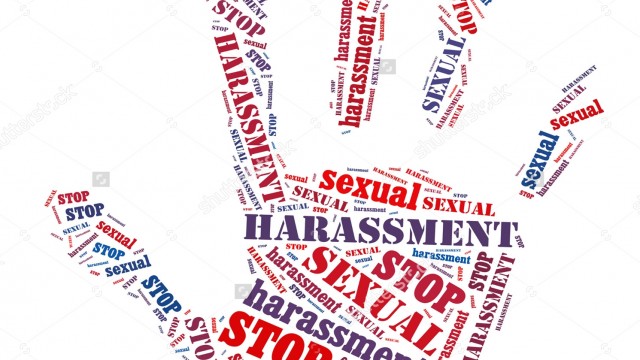“Quitting Silence” – Featuring Various Aspects Of Sexual Harassment
Despite living in a world that bears a wide variety of religions, races, ethnicities and moral conduct rules, all of which indubitably condemn sexual harassment, this sexual harassment remains a repulsive problem. It is a problem so excruciating that it needs to be addressed at grass root level immediately. Schools, colleges, universities, libraries and workplaces are only a few of the many places where sexual harassment can take place.
Office of Institutional Equity, University of Michigan has defined sexual harassment as requests for sexual favors, sexual advances or other sexual conduct when:
(1) submission is either explicitly or implicitly a condition affecting academic or employment decisions;
(2) the behavior is sufficiently severe or pervasive as to create an intimidating, hostile or repugnant environment; or
(3) the behavior persists despite objection by the person to whom the conduct is directed. The University considers such behavior, whether physical or verbal, to be a breach of its standards of conduct.
Sexual harassment has two types, which very few of us are aware of.
- Quid pro quo (meaning “this for that”): this kind of sexual harassment occurs when it is stated or implied that an academic or employment decision about a student or employee depends upon whether the student or employee submits to a conduct of sexual nature.
- Hostile environment sexual harassment: occurs when an unwelcome conduct of sexual nature creates an intimidating, threatening or abusive working or learning environment or is so severe, persistent or pervasive that it affects a person’s ability to participate in or benefit from an activity.
Innumerable cases of sexual harassment, sexual assault and rape have surfaced recently, all of them prompting the society to figure out the reason for it. Sexual harassment is, above all, a manifestation of power relations – women are much more likely to be victims of sexual harassment precisely because as compared to men they may have lesser physical strength, may be in more vulnerable and insecure positions, lack self confidence, or may have been socialized to bear everything in silence. According to researchers, the use of harassment as a tactic to control or frighten women explains why sexual harassment is most frequent in occupations and workplaces where women are new or in the minority. Psychologists have summed up some of the causes of sexual harassment as:
- Desire to dominate women
- High authoritarianism
- Strong belief in sex-role stereotypes
- Difficulty in being empathetic.
It is no surprise that sexual harassment leaves the victims in deplorable conditions, which may include psychological or physical issues, or behavioral or social disorders, etc.
As identified by the doctors, some of the many medical issues that victims have to deal with are listed below:
- Depression
- Post-traumatic stress disorder (PTSD)
- High blood pressure
- Sleep disorder
- Physical aches and pain.
Self harm, anxiety attacks, eating disorders are also common among victims. It has been repeatedly reported that most victims become suicidal as well! Furthermore, harassment and abuse has adverse effects on the victim’s relationships, job or education.
Despite being well aware of the grave consequences of sexual harassment, the authorities – and the society in general – are always willing to brush it under the rug. Perhaps, because the victims themselves are too embarrassed to file a complaint or raise their voices. Several studies have found that only 3 percent of women who have been sexually harassed make a formal complaint. In a study of 2,000 women working at large state universities, Dr. Fitzgerald found that most had not reported sexual harassment because they feared they would not be believed, that they would suffer retaliation, would be labeled as troublemakers, or would lose their jobs. Some women say they stay silent because they fear that reporting an incident may cost the harasser his job or his marriage.
In spite of being as horrendous and loathsome as sexual harassment and abuse is, there are certainly solutions to this problem. The society should gain courage to raise its voice and openly condemn sexual harassment and abuse. People, children and women in particular who are subjected to it should report it to the authorities irrespective of their relationship or link with the harasser or abuser. It is a major parental responsibility to have a healthy relationship with their children and ensure that their children know who to turn to if they face any harassment.
The media and censor boards should ensure that no sexually explicit content is aired on print and press media. Awareness must be raised among people on ways to refuse the harassment and abuse, and in fact to also help those in need. It is obligatory upon the police and concerned authorities to punish the offenders in a way that creates deterrence among others. Our education system should be upgraded in order to prepare the students to deal with day to day challenges as this one.
But most importantly, educating a potential harasser should be taken as a foremost preventive measure than getting the victim to raise voice as a curative measure!
It is high time that the society and the concerned authorities get their priorities straight and eradicate this atrocious issue entirely.
The views expressed in this article are those of the author and do not necessarily represent the views of CourtingTheLaw.com or any other organization with which she might be associated.


